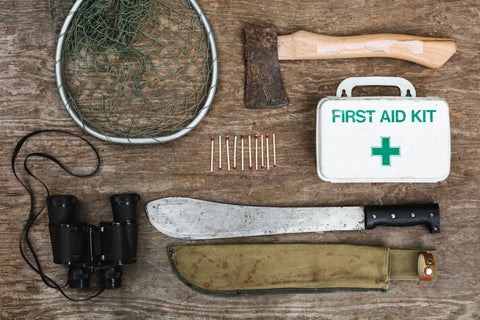Back in the 90’s, when I was younger and incredibly adorable, I asked questions about everything I saw on TV. I probably loved TV just as much as I loved books, something that hasn’t really changed now that I’m grown and not quite as adorable. I was a sponge for information and stories.
Some nights, I would sit on the couch or on the floor, watch along with my mom and listen to the news. Occasionally, I would ask a question, but most of the time I would listen, even if I had really had no clue as to what anyone was talking about. The news was just fascinating to me at that age.
At that age, I wanted to understand anything and everything and sound like the grownups on TV. You may have kids who are exactly the same way. They’re hyper-informed about the world around them, learning things in school many of us probably would have had to learn from our parents, and influenced by self-made celebrities on Youtube and Instagram. They have access to an endless supply of information all day, everyday. You and I had the news, encyclopedias, the library, and, if you had cable TV like me, Mr. Wizard.
But we didn’t have to worry about information overload in those days. We didn’t worry about too much screen time from technology. And we certainly didn’t have to worry about the dangers of a global pandemic locking us all in our homes for months.
In the last few months, family’s lives have likely been flipped upside down. By now, your kids have probably learned about what’s going on in the country and the reasons why they can’t go to school, the playground at the park, their friend’s house down the street, or even other family members. And while they may understand there’s a virus that’s making people sick, they may not understand.
And now, as we come closer to the end of the summer and schools are being pressured more and more to reopen their doors, your kids are probably worried just as much as you. They’ve been forced to live a life of safety for the last six months and now they may have to face the world by going back to school and into the unknown. They can see you’re worried. They can hear the conversations going on in your house and they’re absorbing the news around them. It’s only natural for them to be scared or worried.
While covid-19 may not succeed in getting us all sick, it has done a great job at ruining the mental health of adults and children. And for those of you with children who suffer from anxiety or depression, you may have a better understanding of the mental toll quarantine is taking on everyone, myself included.
Before school starts up again, it’s time to make sure you sit down and have a conversation with your kids about mental health and the realities of what is going on in the world right now. They may be suffering more than they’re letting on and may have questions. There are several ways to calm their fears and help them cope with the world around them.
Sit Down and Talk
By far, one of the best things you can start with to help your children is to talk with them about their worries and their fears. You may find out they’re having the same worries you’re having. It’s alright if they ask a question and you don’t know the answer. You’re allowed to not have all the answers. If you feel it’s important enough for them to know, consider looking up the information together if it’s something they’re worried about.
Ask them what they’ve heard about the virus and if they’re worried about something you know isn’t true, talk to them about it. Avoid being blunt and saying they’re wrong. Assure them that not everything they see and hear is true and the thing they’re worried about isn’t something to be worried about after all.
Be honest if they ask you personal questions about how you feel. Masking your feelings in front of your kids might have the adverse effect of making them feel like their feelings are invalid and misplaced. This might make them feel like they need to really hide what they’re feeling because you’re doing it.
Limit TV News and Digital Media
With information available to all of us in an unlimited capacity, having too much of it can be taxing on the mind. With so much depressing information coming in on a daily basis from states all over the country. It’s easy to become overwhelmed by the vast problem of the virus.
The recent phenomenon called “fomo,” or “fear of missing out” can have a severe emotional impact on young people. The more time they spend on social media and see their celebrity idols or friends doing things they wish they could do, the easier it is for them to fall into a depression or become frustrated with their own situation.
For that reason, make sure you kids are doing something else other than watching the news or spending too much time on their social media profiles. Get together as a family to distract them, and you, from the world for a little while. Play a few board games, have a water balloon fight in the backyard, go swimming if you have a pool, bake together, or go on a road trip. Do anything that will help you make good memories instead of hearing bad news all the time.
Manage Your Own Anxiety and Worries
In order for you to be the best help for your children, take time to work on yourself if you’re not coping very well. It’s okay to not have a good mental health day. It’s absolutely alright to feel overwhelmed by everything going on and need a little break from everything in order to put yourself in a good place for your family.
In finding ways to manage your own stress and anxiety, you may find useful ways to help your kids who don’t know how to deal with what they’re feeling. Try some mediation, relaxing breathing techniques, yoga, soft music, or even a good workout. But keep your exposure to information limited. Don’t go back to the things making you anxious or depressed in the first place. It’s okay to take a break from information and give yourself some brain candy.
Set a Schedule of Things to Do
While might not be as effective for teenagers who like to have the freedom to do their own thing, creating a schedule for younger kids can keep them distracted from everything and help them to just be kids.
More than likely, your kids have school work to do during the day, so that takes up part of their day. But if they have nothing to do, consider making things to do together like starting a garden in the backyard and show them how to maintain it. If they like working with their hands, take them into the garage and start a project with them. It has the added benefit of teaching them a new school and building memories with you.
You can also make regular things to do like washing dishes, emptying the dishwasher, folding the laundry, cleaning their room, or spending an hour reading.
Teenagers are pretty good at keeping themselves occupied, but it’s still a good idea to suggest to them to find other things to do than play video games and be on their digital devices all day.
Know When It’s Time to Get Help
Even if you’ve done everything you can do as a parent to make things a bit less stressful, it’s important to know your limitations as a parent and know when to seek professional help. This will likely be the case if you have a house with teenagers, who have emotional issues that are far more complex than younger children.
Teens may or may not open up to you about what they’re feeling. Instead, they may turn into a completely different person as they try to cope with life.
Remember, the teenage years are a critical point in anyone’s life. Teenagers spend a ton of time building a social life by making friends, going to parties, joining groups at schools, and generally discovering who they are as a person. And now that being social is difficult and school is likely going to be different, such as big events like prom and graduation being canceled, many may feel frustrated, angry, or depressed that they won’t get to do the things everyone else takes for granted.
It may be time to consider talking to a doctor about your teen if you start to notice:
- Changes in their mood that are abnormal for them like irritability, hopelessness, depression, or general anger
- Changes in their relationship with people in the negative, especially if they become withdrawn from people they normally talk to frequently
- Losing interest in hobbies or activities they enjoy doing regularly
- Sleeping issues like oversleeping or insomnia
- Concentration or attention issues
- Lack of personal hygiene and change in appearance
- Sudden increase in reckless behavior
- Sudden talk about suicide, which needs to be address immediately
Try to Be the Best Family You Can
Times are tough and there’s practically no one on this planet who is going to dispute that. You may be doing the best you can to hold everything together and that’s really the most anyone could ask of a parent.
And that may be the best way to help your family. Set the mood as the parent and be the best family you can be. That certainly doesn’t mean mask your real feelings and pretend everything is awesome. There will always be good days and bad days, some more than others. But all you can do is your best and be there for each other.
When you notice one of your children acting differently and they have questions about what’s going on, ask them if everything is alright. Answer their questions and put their thoughts at ease if you can. Teach them the basics about the virus, how people get it, and how not everyone who gets it will be super sick like the people they see on TV. Tell them as long as people wear masks, practice social distancing, and stay home if they don’t need to be outside, things will get better really soon. And then encourage them to find positive ways to help calm their worries.
And above all, take the time to relax. Your family needs you and you can’t help them when you’re struggling yourself. Take time for yourself to decompress. Do things that make you happy. Call up friends and hear a friendly voice. Work on a hobby you haven’t done in a while. Do something that lifts you up for a little while and puts a smile on your face. The better you feel, the better you’ll be able to help your family.




Comments (0)
There are no comments for this article. Be the first one to leave a message!